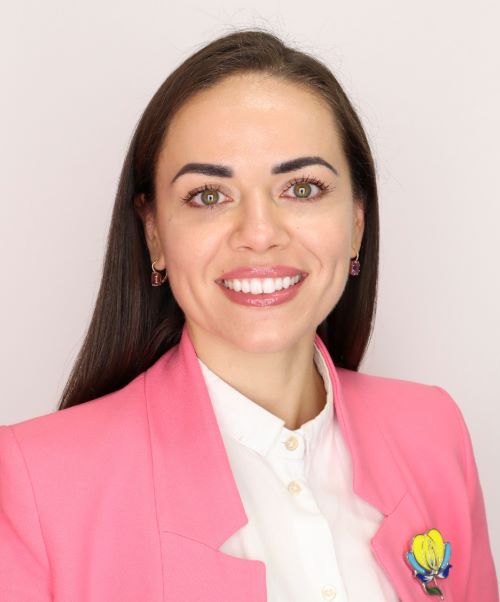
Oksana Moroz

Dr. Moroz is a Fulbright alumna and a native of Ukraine. As a transnational teacher-scholar, she advocates for social justice and values student agency. Her teaching agenda is to educate students to become better citizens by providing them with the necessary knowledge and engaging them in reflexive practices. Dr. Moroz strives to broaden students' worldviews and interrogates their ideologies, stereotypes, and prejudices through diverse class experiences.
Dr. Moroz's research examines the intersections of writing and digital humanities, mainly focusing on how technologies influence writing practices and pedagogies in diverse linguistic and cultural contexts.
In the classroom, Dr. Moroz integrates a humanistic and empathetic approach to teaching, prioritizing the holistic well-being of her students. She believes in the power of writing and communication as instruments for positive change and spiritual growth, encouraging students to develop into skilled, thoughtful writers and citizens.
Outside her academic interests, Dr. Moroz actively supports mothers in academia through her work with the International Association of Maternal Action and Scholarship. She takes pride in representing her Ukrainian heritage in Pennsylvania and is deeply involved in community outreach, including media engagements, informational sessions, and humanitarian efforts.
Balancing her professional responsibilities with her identity as a wife to Taras and a mother to Emma and Mark, Dr. Moroz enjoys group exercise spinning and is obsessed with giraffes.
B.A. in English, French, and World Literature (Vasyl Stefanyk Precarpathian National University, Ukraine, 2013)
M.A. in English, French, and World Literature (Vasyl Stefanyk Precarpathian National University, Ukraine, 2014)
M.A. in TESOL (Indiana University of Pennsylvania, 2017)
Ph.D. in Composition and Applied Linguistics (Indiana University of Pennsylvania, 2024)
- Critical Reading and Writing
- Introduction to Professional Writing
Multilingual students' digital identities, narrative methods of inquiry, gender identities of teacher-educators, language ideologies, and writing assessment.